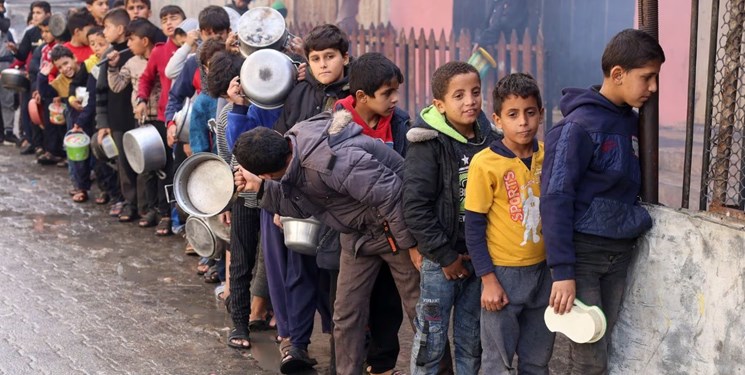The United Nations agency for Palestinian refugees has warned that not enough aid is entering besieged Gaza, leaving 40 percent of its population “at risk of famine” amid Israeli curbs on entry of much-needed aid trucks to enter the enclave, according to Al Jazeera.
The UN Relief and Works Agency for Palestine Refugees (UNRWA) on Thursday renewed its warning that the besieged enclave is “grappling with catastrophic hunger”, as it reiterated calls for a “humanitarian ceasefire” as non-stop Israeli bombs rained from the north to the southern part of the enclave.
“Every day is a struggle for survival, finding food and finding water,” Thomas White, director of UNRWA affairs in Gaza was quoted as saying on X, formerly known as Twitter.
“The reality is, we need more aid. The only remaining hope is a humanitarian ceasefire,” the agency said on X.
A “total siege” imposed by Israel since the war began on October 7, and following years of crippling blockade, has deprived Palestinians in Gaza of food, water, fuel and medicine. The severe shortages have only been sporadically eased by humanitarian aid convoys entering primarily via Egypt.
Last week, the United Nations Security Council passed a resolution on more aid for Gaza after days of delays, but aid groups and rights advocates described the resolution as “woefully insufficient” and “nearly meaningless.”
The latest stark warning by the UN agency on the humanitarian catastrophe unfolding in Gaza came as Israeli troops on Thursday continued to heavily bombard the territory, with the centre of fierce combat with Hamas fighters steadily moving south – where hundreds of thousands of displaced Palestinians are sheltering.
Air and artillery attacks and house-to-house fighting have become heaviest in the southern city of Khan Younis. Ashraf al-Qudra, spokesman for the Health Ministry in Gaza, reported more than 200 deaths “including entire families” over the past 24 hours in attacks across the territory.
More than 80 percent’s of Gaza’s 2.4 million people have been driven from their homes, the UN says, and many now live in cramped shelters or makeshift tents in the far south, in and around the city of Rafah near the Egyptian border.
Earlier, UN World Health Organisation (WHO) chief Tedros Adhanom Ghebreyesus called for “urgent steps to alleviate the grave peril” facing Gaza’s people, including “terrible injuries, acute hunger and … severe risk of disease”.
Last week, a UN-backed report warned that the entire 2.3 million population of Gaza is facing crisis levels of hunger, with 576,600 people at catastrophic – or starvation – levels.
According to the report, published by 23 UN and non-governmental agencies, the proportion of households in Gaza affected by high levels of acute food insecurity is the largest ever recorded globally, eclipsing even the near-famines in Afghanistan and Yemen of recent years.
Israel’s relentless aerial bombardment and ground invasion have killed at least 21,320 people, mostly women and children, according to Gaza’s health ministry.
Eylon Levy, the Israeli government spokesperson, has accused the UN of a failure to provide aid to civilians in Gaza. He claimed that Hamas hijacks aid and that the “UNRWA covers up for it”, and blamed the UN’s logistics for the closure of the Israeli-controlled Karem Abu Salem border crossing (called Kerem Shalom in Israel) this week.
Israel has not provided any proof for its allegations against the UN agency.
Earlier this week, Israel said it would not renew the visa of a UN staff member in the country and will also deny the visa request of another UN employee as the global body has criticised Israel’s targeting of civilians and hospitals during the Gaza war. An overwhelming majority of the more than 21,000 Palestinians killed are civilians.
Israeli officials have brushed off international calls for a ceasefire – saying it would amount to a victory for Hamas.
The United States – while providing crucial support for the offensive – has urged Israel to take greater measures to spare civilians and allow in more aid. But humanitarian workers say the amount of food, fuel and medical supplies entering is still far below what is needed.










Trackbacks and Pingbacks